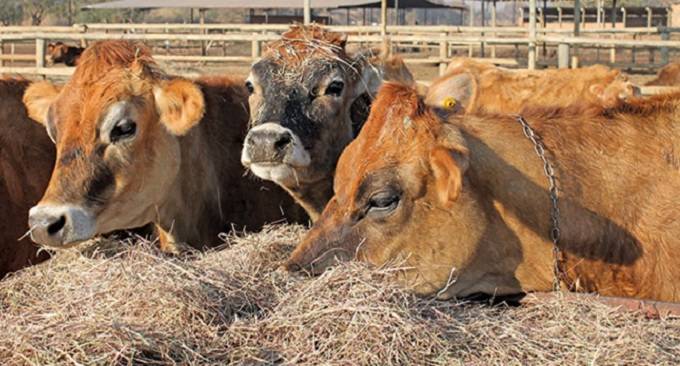
The Sunday News

Mhlupheki Dube
ONE of the things that I have learnt over the years interacting with farmers is that continuous learning and adaption is important.
Above all, I have learnt that animal health management is the most pressing gap that most farmers have and yet the Department of Veterinary Services which is responsible for animal health management is the least represented on the ground with offices far and spread apart.
More often than not, each time a farmer calls, the consultation has a lot to do with a sick animal than it has anything to do with other husbandry issues. The reason is simple to figure out, it’s because animal illness is an issue of life and death. Every farmer will agree that their most stressful time is when one of their animals is sick or worse still when they have lost that animal.
The question is how can farmers be adequately prepared so that they are able to respond to an animal health issue within their herd? Secondly how can farmers be prepared so that they are able to deal with emergency situations such as dystocia cases and save their cows as well as calves?
My view is that there is a need to further train and depeen the animal health knowledge among extension officers especially those that fall under the crop and livestock department. While most of them have received college training in animal production, their appreciation of the animal health subjects such as disease identification and treatment is limited.
It would help to have such officers undergo further training in that critical component of animal husbandry practice so that they are not found blank when a farmer comes to consult. Admittedly it is not possible to know all the livestock diseases out there but it will help if an extension officer can identify the common diseases and recommend the drugs that a farmer can buy.
In addition to capacitation of extension officers, livestock farmers should take a keen interest in developing their scope regarding animal health management so that they are able to respond to some of the situations.
It should not be lost to readers that most livestock farmers are not people who were trained in colleges and hence most of the things they have to actively seek for information on their own. Even those that are college trained will be the first to admit that real learning happens when you begin to do it practically.
So when you combine you practical experience in the field and your theoretical knowledge of the concept you get a better understanding of the subject. It would be very useful for example if experienced farmers can run practical training courses for specific animal husbandry courses especially critical ones like animal health management.
Half the time one sees courses that are advertised and run by green horns who have no idea what they are talking about because they are not practising farmers.
I advocate for farmer to farmer training schools where farmers get training from a person who is sharing what they do and experience every day. Such trainings can be organised by farmer organisations on a regular basis and farmers pay for the training. Paying for knowledge is one thing that I want to encourage especially among smallholder livestock farmers to adopt.
I have noticed from experience that somehow most smallholder livestock farmers believe that knowledge is for free.
I get people who buzz my number and when I return the call I discover it’s a farmer who wants to consult about his sick animal.
So this farmer somehow believes that it is appropriate that I should call him using my own airtime to provide him knowledge about his sick animal for free! What cheek! It is therefore my challenge to agricultural societies and any such bodies to coordinate and run farmer training schools for practical issues that are bedevilling farmers daily.
A general improvement in animal health provision and interventions marks an overall performance of the herd and hence farmers should invest in knowledge and skills acquisition.
Uyabonga umntakaMaKhumalo.
Feedback [email protected]/ cell 0772851275



